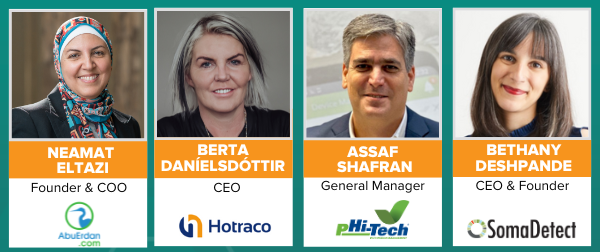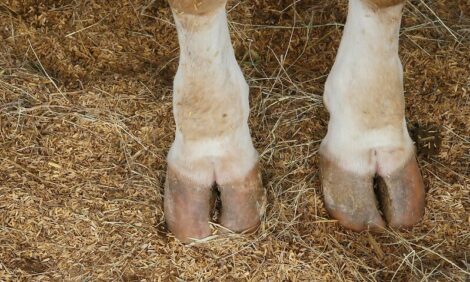



How are automation and precision farming taking the reins from farmers?
how is automation helping farmers reduce their labour hours and improve animal care?With precision farming on the rise in the animal agriculture industry, how is automation helping farmers reduce their labour hours and improve animal care?
A host of precision farming experts at the Animal AgTech Innovation Summit in Amsterdam will explore the benefits of using sensors, cattle tags and cameras to produce actionable insights for livestock production, including:

Neamat ElTazi, Founder & COO, ABUERDAN, EGYPT:
“Artificial intelligence has the potential to elevate climate control much like Tesla’s self-driving technology transformed traditional cruise control. In doing so, it has the power to revolutionise production performance all while maintaining a harmonious balance with sustainability and welfare of our livestock. This results in a more sustainable and eco-conscious approach to livestock management. In essence, artificial intelligence is not just transforming climate control, it is revolutionising the entire landscape of livestock production, making it more efficient, sustainable, and animal-friendly.”
Berta Daníelsdóttir, CEO, HOTRACO, NETHERLANDS:
“One of the most crucial factors in the development of precision farming is the ability to reliably automate farm processes. Process automation can in fact be considered as one of the most advanced forms of ‘robotics’ in our industry. This can be enabled by the installation of central multi-function controllers which can automatically optimise the management of barn lighting, temperature, ventilation, feeding, water and much more.
Such controllers gather live data from relevant sensors, analyse it and normalise the barn’s environment accordingly, through the activation of physical components like fans, conveyors, and heating systems. This advanced level of farming carries multiple benefits, including minimisation of human error, boosts animal welfare and farm efficiency and the ability to get the most out of the animal’s genetic potential.”
Assaf Shafran, General Manager, PHI-TECH, ISRAEL:
“Precision technology is revolutionising farming, minimising interventions, and enhancing health and welfare. Smart sensors and automated systems increase accuracy with real-time control. When looking at animal health, traditional vaccination remains a process requiring direct contact. Advanced vaccination solutions reduce hard work for operators, animal stress, accelerate recovery, and ultimately enhance farm productivity.”
Bethany Deshpande, CEO & Founder, SOMADETECT, CANADA:
“Farms are highly complex biological systems. We have done so much in the past decades with optimisation using the datasets that exist on all types of farms. The application of AI opens a massive new toolset for analysis and understanding farms unlike what we’ve seen before. This leads to innovation and new approaches that allow us to optimise at a time when increased efficiency and sustainability of our farms is critical.
The focus of so many AI technologies is around enabling improved profitability, maximising labor efficiency, minimizing inputs, and reducing GHG emissions from our food production systems. AI acts as a bridge between the complex, day-to-day operations of a farm, and how each person’s input is used most effectively. I think when AI is used as this bridging mechanism, everyone wins – farmers, suppliers, processors, and consumers. This is about AI enabling a symbiotic relationship that not only fosters more efficient resource allocation but also cultivates sustainable farming practices by minimising waste and maximising yields, and provides incredible care of the land and animals we steward.”
We look forward to hearing more from our experts on their panel sessions at the summit, book your place now to join them


